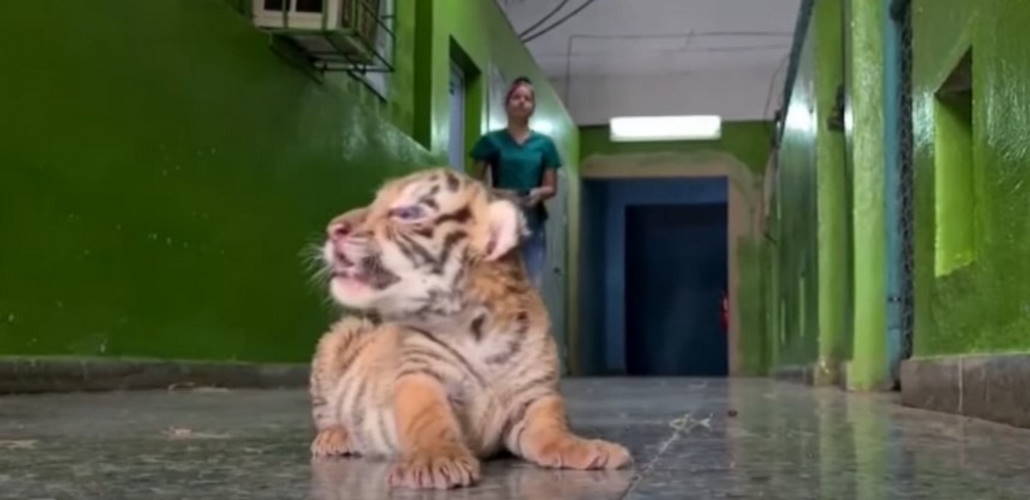MIAMI, United States. — The National Zoological Park of Cuba, also known as the National Zoo, reported the birth of a Bengal tiger cub, a species in danger of extinction and with difficulties to reproduce in captivity.
With just three weeks of life, the little feline, still without a name, is in the supervised artificial breeding area, where specimens of other species also receive attention.
Rachel Ortiz, a veterinarian at the National Zoo, told the EFE Agency that the first days of the Bengal tiger cub have not been easy, because it was rejected by its mother – a common behavior among felines – and had to spend its first days in an incubator.
However, the specialist was optimistic about the state of the little tiger, which behaves in a stable manner despite exhibiting a slight locomotion disorder.
“He has a good weight and his behavior is appropriate,” said the specialist.
The Spanish agency reports that the Bengal tiger cub is the son of Fiona and Garfield, two brothers who arrived at the National Zoo in 2018.
The little feline was the only survivor since his other three brothers died shortly after birth due to a neurological anomaly called vestibular syndrome.
Rachel Ortiz indicated that for his recovery, the newborn receives a vitamin supplement and sunbaths.
Initially, the baby tiger was fed with bottles of a milk substitute substitute for breast milk. After two weeks of life, he began to receive a chicken shake and, later, horse meat.
Ángel Cordero Sánchez, founders of the “moat” of the National Zoo, highlighted the birth of a small Bengal tiger, a species that had not reproduced in Cuba for more than two decades.
Receive information from CubaNet on your cell phone through WhatsApp. Send us a message with the word “CUBA” on the phone +1 (786) 316-2072, You can also subscribe to our electronic newsletter by giving click here.





